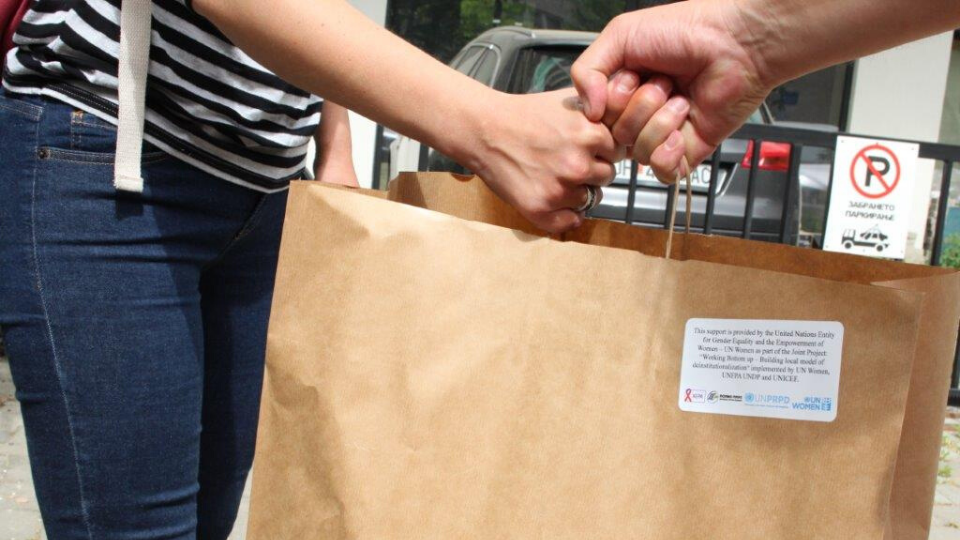Press Release: UN Women supports the distribution of COVID-19 emergency packages in North Macedonia for people with disabilities
UN Women led the distribution of emergency packages, including food, vitamin supplements, hygiene products and protective equipment, in Strumica region as an immediate response to the specific needs of deinstitutionalized women and men with disabilities during the pandemic.Date:

Strumica, 15 May 2020 – A total of 33 emergency packages with long lasting food, vitamin supplements, hygiene products and protective equipment are distributed to people with disabilities, former users of the Pubic Institution Banja Bansko, now residing in apartments designed for their independent living. Their personal assistants and caregivers in the city of Strumica and the surrounding region also received the packages. The support targets 22 people, out of which 18 are women with disabilities and their personal assistants and caregivers. This initiative is realized by the civil society organization (CSO) HERA in partnership with Disabled Persons Organization (DPO) Polio Plus, in the framework of the UN Joint Project “Working Bottom up – Building a local model on deinstitutionalization”, implemented by UN Women, UNDP, UNFPA and UNICEF in North Macedonia, and funded by United Nations Partnership on the Rights of Persons with Disabilities (UNPRPD).
“During a pandemic, the marginalized groups of citizens become even more marginalized because it is more difficult for them to achieve their individual rights and needs. Therefore, any support is welcome to mitigate the impact that they undoubtedly feel,” says Elizabeta Bozinoska, Programme Director of CSO HERA.
While natural disasters and pandemics have devastating effects on everyone, people with disabilities are among the most vulnerable, which intensifies the already existing inequalities towards this group. One billion people across the world living with disabilities are among the hardest hit by the coronavirus and they must have equal access to prevention and treatment from COVID-19. The pandemic caused by COVID-19 introduced new challenges for women with disabilities. They are at greater risk of gender-based violence, experience difficulties in accessing healthcare and community support services. Women with disabilities also lack access to essential information and are at high-risk of social isolation.
In crisis circumstances, it is challenging for women to exercise the rights and freedoms guaranteed under the Convention on the Rights of Persons with Disabilities (CRPD), especially the right to access support services that enable their independent living, and to manage the costs related to disability.
The initiative comes as a response to the specific needs of the deinstitutionalized people with disabilities in Strumica and the surrounding region, as a result of administrative barriers to regular food supply, day-to-day personal assistance services and home-based caregiving. CSO HERA and DPO Polio Plus are implementing the project “Making it Work: Prevention of gender-based violence and discrimination among persons with disabilities from the Public Institution Banja Bansko”, which contributes to UN Women’s efforts towards implementation of the national agenda for deinstitutionalization.